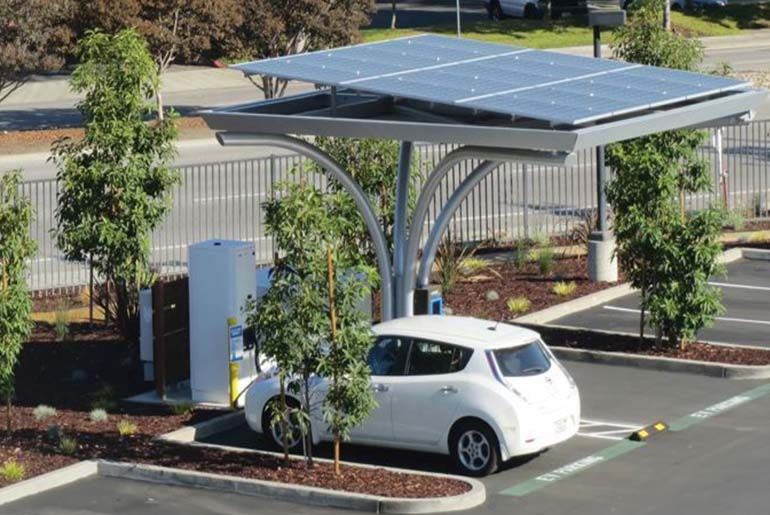In a major push towards clean energy and sustainable urban transportation, Chandigarh has inaugurated four solar-powered electric vehicle (EV) charging hubs across the city. The project integrates renewable energy with EV infrastructure, providing fast, reliable, and eco-friendly charging solutions for electric vehicle owners.
Strategic Locations for Maximum Impact
The charging hubs have been set up at key city locations to ensure accessibility for EV users:
-
IT Park – flagship site with a 500 kWp rooftop solar installation
-
New Lake Parking (Sector 42)
-
Botanical Garden Parking
-
New Grain Market (Sector 39)
At the IT Park hub, 230 kWp of solar capacity is dedicated to EV charging and battery swapping stations, while the remaining capacity supports other infrastructure needs. Battery storage systems are incorporated to ensure uninterrupted services even during cloudy weather or night-time hours.
Innovative Financial Model
The initiative is developed under an Operational Expenditure (OPEX) model, encouraging private sector participation without requiring upfront government subsidies. This approach ensures financial sustainability while allowing for scalable expansion of the solar EV charging network.
Environmental and Social Benefits
By powering EV charging stations with solar energy, Chandigarh aims to significantly reduce carbon emissions associated with transportation. The project aligns with the city’s broader goals of achieving net-zero emissions and promoting sustainable urban development. It also serves as a model for replicable renewable energy integration in urban mobility infrastructure across India.
Future Expansion Plans
The success of these initial hubs is expected to guide further deployment of solar-powered EV charging infrastructure throughout the city. The Chandigarh Renewable Energy and Science & Technology Promotion Society (CREST) plans to expand the network based on lessons learned from the pilot, enhancing accessibility for both private and commercial EV users.
Conclusion
Chandigarh’s launch of solar-powered EV charging hubs represents a major milestone in sustainable mobility, combining renewable energy innovation with smart transportation solutions. By creating a clean, efficient, and reliable EV charging ecosystem, the city is setting a benchmark for eco-friendly urban mobility initiatives in India.

